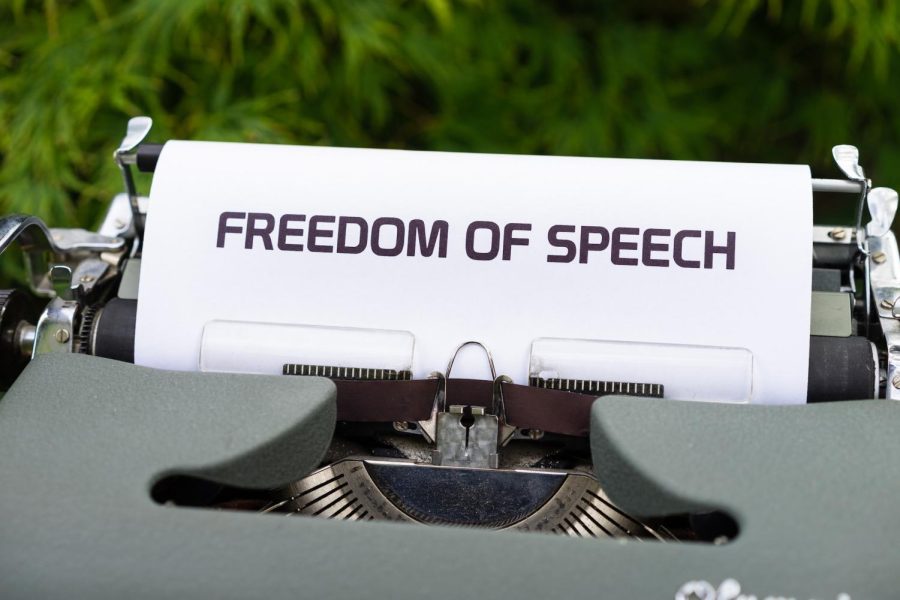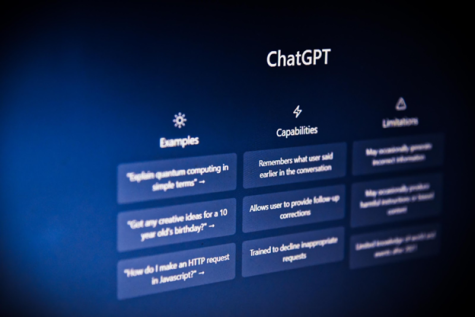The Talon Celebrates Student Press Freedom Day
Markus Winkler via unsplash.com
In a world where racism, homophobia, sexism, and many other forms of discrimination are present, we must protect the freedom of speech of student journalists.
One of the most important parts of a high school is its newspaper. Whether digital or in print, it brings information to the student body from the perspective of one of its own. Our country values freedom of speech, but school newspapers don’t have the same rights as mainstream newspapers in America. The freedom of speech of many school newspapers is threatened by censorship due to a lack of laws protecting them. To raise awareness about this issue, The Talon is celebrating Student Press Freedom Day on Thursday, February 23, 2023.
School newspaper censorship finds its legal foundations in the case of Hazelwood School District v. Kuhlmeier (1988). The principal of Hazelwood East High School in Missouri had censored the school’s newspaper, preventing an article about teen pregnancy and the effects of divorce from being published. Staff members sued, and the state court ruled in favor of the school district. The case made its way to the Supreme Court, where it was decided that schools could censor their newspapers as long as they could provide an educational justification. Their reasoning for such was based on the fact that the newspaper in question was school-sponsored and, therefore, not a public forum of expression. According to the decision, a school’s foremost responsibility is to teach, and if constitutional rights get in the way, the rights are the thing that goes.
This decision has become very influential in limiting student press freedom, and today only 16 states have laws that counteract it. For example, Maryland is one of the states that has taken action to protect the rights of student journalists. In 2016, Former Governor Larry Hogan passed the New Voices Maryland Act, which prevents student journalists in Maryland public schools from being disciplined, censored, or influenced by staff unless their speech breaks the law or needlessly invades privacy.
As a private school, Good Counsel does not have to follow this law. The articles that The Talon publishes must be approved by members of the Good Counsel staff, and there have been topics that we did not cover despite having the ability to do so. The reasoning is simple: the school is liable for what we publish. That does not mean that the opinions we express are equivalent to GC’s opinion, but it does mean that GC would have to take responsibility if what we published was demeaning or libelous.
The same is true for many private schools nationwide, but some take it so far as to disallow their newspaper from publishing statements antithetical to their own beliefs. Faculty advisers to newspapers have even been fired for refusing to comply with censorship brought on by the school. At Regis Jesuit High School, a Catholic school in Colorado, two teachers were fired for allowing a student journalist to publish an editorial expressing a pro-choice view. Maria Lynch, a faculty adviser who was fired for approving the article, is pro-life herself. Still, she believes her students should “be able to express their questions and doubts in class and in writing so that we can engage in a real conversation with them.” Colorado is another of the 16 states that protect student journalists under their Colorado Student Free Expression Law, but it does not apply to private institutions.
Historically, schools have been pivotal battlegrounds of expression. During the Vietnam War, students engaged in silent protests by wearing black armbands. A public school in Des Moines suspended students for doing so, and the school was sued. The case, known as Tinker v. Des Moines, found its way to the Supreme Court, where it was decided in favor of the students. The majority opinion included this statement: neither students nor teachers “shed their constitutional rights to freedom of speech or expression at the schoolhouse gate.” However, they shed their constitutional rights when their speech “substantially disrupts” the educational process, such as in the Hazelwood v. Kuhlmeier case.
To a student journalist, the landscape of student press freedom is rather dismaying. Our world requires honest, principled voices now more than ever, and student journalists are a vital part of those voices. They offer perspectives that others may miss, improving their communities. As students, it is our responsibility to raise awareness about censorship and speak up if freedom of speech is questioned. Most importantly, make sure to know your rights and always defend them!
Sources:
https://www.mdcspa.org/new-voices-act.html
https://studentpressfreedom.org/#post-inner
https://www.thoughtco.com/does-freedom-of-the-press-apply-to-student-newspapers-2073943
https://www.thefire.org/research-learn/under-pressure-warning-signs-student-newspaper-censorship https://www.aaup.org/report/threats-independence-student-media











